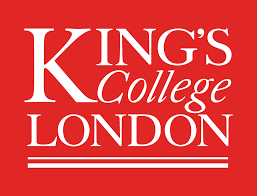University of Oxford: against COVID-19 University

Entity: University of Oxford
Category: University
Description: Oxford is a world-leading centre of learning, teaching and research and the oldest university in the English-speaking world.
1. Project: ChAdOx1 nCoV-19
Summary: The University of Oxford’s ChAdOx1 nCoV-19 is an adenovirus vaccine vector developed by the university’s Jenner Institute. The university is testing the vaccine in a clinical trial planned to be conducted in the Thames Valley Region."
2. Project: INTERVAL Study (UK Blood Donors Cohort Study)
Summary: This study is part of the global project 'The COVID-19 Host Genetics Initiative'. The INTERVAL study has been set up by the Universities of Cambridge and Oxford in collaboration with NHS Blood and Transplant. They started recruiting blood donors to the study in June 2012 and reached their target of 50,000 study participants two years later, in June 2014. Donors who give blood across England have joined the INTERVAL study to help the researchers compare the effects of donating blood at different time intervals. The project's goal is to find the optimum interval for which it is safe for different donors to give blood. Researchers will look at whether donation intervals should be tailored to donors by age, gender, genetic profile and other characteristics. The study’s findings should help to improve the well-being of blood donors in England and enhance the country’s blood supplies.
Accessing Electronic Health Records: To understand the health of participants in the study—and to track how this change over time— the project uses medical and other health-related records (i.e. Hospital Episode Statistics). The National Health Service (NHS) doesn’t have a single record system and thus information needs to be obtained from various sources. The retrieved participant's information is ‘de-personalised’ by removing personal details such as name or NHS number and replacing them with a unique anonymous study number. The de-personalised information is then stored in a restricted-access, study database.
The University of Cambridge is the Data Controller for this study. This means, they process personal data for scientific research purposes as part of the University of Cambridge’s public task under articles 6(1)(e) and 9(2)(j) of the General Data Protection Regulation.
Affiliation: University of Cambridge
Research question: A multipurpose recallable bioresource to understand the genetic determinants of molecular traits and clinical outcomes.
Study design: ~80,000 blood donors aged 18-80 recruited at sites across England from 2012 onwards into a 'multi-omics' bioresource. All participants have genetic data and are linked to health records. Subsets have molecular assays, including transcriptomics, proteomics, blood cell traits, metabolomics, lipidomics etc.
Type: Retrospective (n=800)
Genetic analysis: GWAS
Investigators: Adam Butterworth, Emanuele Di Angelantonio, John Danesh
3. Project: UK Rapid Test Consortium (UK-RTC)
Summary: It is hoped a successful test will determine whether people have developed immunity after contracting the virus. Along with CIGA Healthcare and three other companies, Ulster University and the University of Oxford, a six-month memorandum of understanding has been agreed to develop and manufacture the test. If successful, manufacturing can take place with each company, including at a site in Northern Ireland. Professor John Newton, national coordinator of the UK coronavirus testing programme, also warned the public against purchasing unapproved tests. Officials are working to produce a reliable test which can be used in the community and help to end lockdown safely.
4. Project: COVID-19 Genomics UK (COG-UK) Consortium
Summary: The COVID-19 Genomics UK (COG-UK) Consortium is a collaboration between the NHS, Public Health England and other UK public health agencies, the Wellcome Sanger Institute, University of Cambridge and other academic institutions. The COVID-19 Genomics UK (COG-UK) Consortium aims to increase the current capacity for SARS-CoV-2 genetic sequencing in the UK. This sequencing data will be used to understand the epidemiology and spread of the virus, and to monitor and evaluate interventions for COVID-19. SARS-CoV-2 genomic data will be integrated with NHS electronic health records and other existing genomic data to generate insights into susceptibility to COVID-19. From within the DPHPC, Professor John Danesh is a member of the COG-UK Steering Group, Dr Ewan Harrison will serve as the Scientific Project Manager and Dr Michael Chapman will lead the health informatics component.
Contributors:
Professor Oliver Pybus, Department of Zoology
Professor David Aanensen, Centre for Genomic Pathogen Surveillance, cohosted at the Big Data Institute
Dr David Bonsall, Nuffield Department of Medicine
Dr Mariateresa de Cesare, Wellcome Centre Human Genetics
Professor Julian Knight, Wellcome Centre Human Genetics
Professor John Todd, Wellcome Centre Human Genetics
Dr Tanya Golubchik, Big Data Institute
Professor Dominic Kwiatkowski, Big Data Institute
+ Members:
Belfast Health and Social Care Trust, Regional Virus Laboratory
Cardiff University
EMBL-EBI (European Bioinformatics Institute)
Genomics England Limited
Genomics Partnership Wales
Advanced Research Computing at Cardiff
Supercomputing Wales
Public Health Wales NHS Trust
Imperial College London
MRC-University of Glasgow Centre for Virus Research
Public Health Agency
Public Health England
Public Health Scotland
Public Health Wales NHS Trust's Pathogen Genomics Unit
Quadram Institute
Queen's University Belfast
The Centre for Genomic Pathogen Surveillance
University College London
University of Birmingham
Queen's University Belfast, Genomics Core Technology Unit
Francis Crick Institute
University of Edinburgh
University of Exeter
Northumbria University
University of Nottingham
University of Oxford
Big Data Institute
University of Portsmouth
Portsmouth Hospitals NHS Trust
University of Sheffield
Sheffield Teaching Hospitals NHS Foundation Trust
Wellcome Sanger Institute
West of Scotland Specialist Virology Centre
NHS Greater Glasgow and Clyde
University of Cambridge:
Department of Veterinary Medicine
Cambridge University Hospital NHS Foundation Trust
Department of Medicine
Division of Virology, Department of Pathology;
Department of Pathology
Cambridge Institute for Therapeutic Immunology and Infectious Disease
5. Project: Collecting COVID-19 data and samples in a way that enables global research (ISARIC-CCP project)
Summary: Health Data Research UK involvement in the International Severe Acute Respiratory and emerging Infection Consortium (ISARIC) Clinical Characterisation Protocol (CCP), to support the UK to collect COVID-19 data and samples in a way that enables the international research required to tackle this global pandemic. The ‘Clinical Characterisation Protocol’ is actually the product of many years of discussion among international investigators from a wide range of scientific and medical disciplines. Work to develop this protocol started in response to Middle Eastern Respiratory Syndrome coronavirus (MERS-CoV) in 2012-2013, Influenza H7N9 in 2013, viral haemorrhagic fever (Ebolavirus) in 2014, Monkeypox & MERS-CoV in 2018 and Tick-borne encephalitis virus (TBEV) in 2019. it is now being used for COVID-19 .
The International Severe Acute Respiratory and emerging Infection Consortium was founded in 2011 to prevent illness and deaths from infectious disease outbreaks. It is a global federation of clinical research networks, providing a proficient, coordinated and agile research response to outbreak-prone infectious disease. Teams at the University of Oxford (part of HDR UK Oxford) and the University of Liverpool are coordinating the UK effort to comply with the ‘Clinical Characterisation Protocol’. Key coordination activities include: capturing Case Report Form Data for the UK in a national database held at the University of Oxford; and providing guidance relating to using the Clinical Characterisation Protocol correctly, coordinated by a team at the University of Liverpool. Health data from COVID-19 patients, as well as biosamples for a range of related molecular ‘omics’ assays, are now being collected in a way that complies with the Clinical Characterisation Protocol framework.
6. Project: COGENT (COvid-19 Genomic Evaluation of Novel Therapies).
Research Group: With the Cardiovascular Epidemiology Unit at Cambridge.
Summary: The COGENT (COvid-19 Genomic Evaluation of Novel Therapies) portfolio of studies is an international collaboration of investigators lead by the Centre for Naturally Randomized Trials at Cambridge that aims to conduct an integrated suite of studies that a) nests a series of naturally randomized genetic experiments within an ensemble of Artificial Intelligence algorithms to identify each person’s unique genomic vulnerability to developing severe symptoms if infected with SARS-CoV-2; b) discover what causes some people to be more vulnerable to developing severe symptoms when they become infected with SARS-C0V-2; c) identify targets for therapies that can decrease the risk of developing severe symptoms if infected with SARS-CoV-2; d) conduct a portfolio of pragmatic naturally randomized trials to identify therapies that can potentially most effectively prevent the development of severe symptoms of SARS-C0V-2 infection; and e) use this information to rapidly design and conduct a series of adaptive pragmatic clinical trials to evaluate the clinical safety and efficacy of the identified novel therapies to prevent progression to severe complications among persons infected with SARS-CoV-2.
Collaborators:
BenevolentAI
University of Cambridge
Cambridge Centre for Naturally Randomized Trials
Cambridge Centre for AI in Medicine
TIMI Study Group Harvard Medical School
Imperial College London Clinical Trial Unit
Monash Heart
Oxford Clinical Trial Service Unit (Oxford CTSU)
University of Milan Department of Pharmacological and Biomolecular Sciences
University of Bristol
23and Me
7. Project: 'Coronavirus: the science explained'
Led and funded by UKRI team
Glasgow researchers - from the MRC-University of Glasgow Centre for Virus Research:
Professor Massimo Palmarini
Professor Margaret Hosie
Dr Sema Nickbakhsh
Partner organisations:
European Molecular Biology Laboratory (EMBL)
Imperial College of London
King's College London
London School of Hygiene and Tropical Medicine (LSHTM)
University of Oxford
Project summary: To provide a website for the public with reliable, detailed, and up-to-date science information on coronavirus and COVID-19. Project details are available at the UKRI webpage.
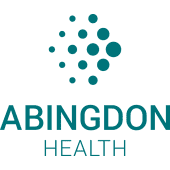



.png)

.jpeg)

.jpg)

%20Consortium.png)




.jpeg)
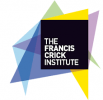
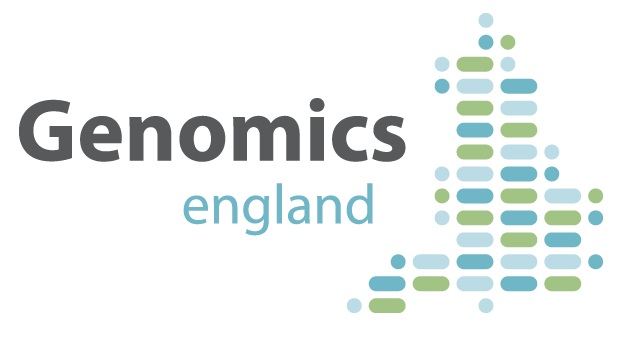
.png)
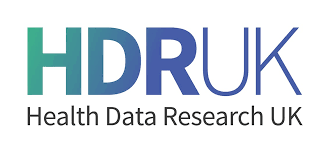
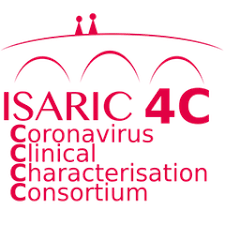


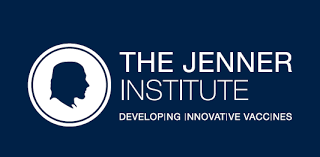


.jpeg)


.png)







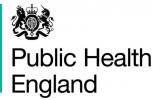
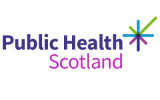
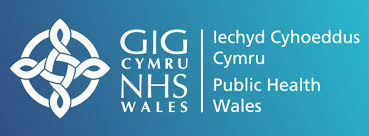

.png)






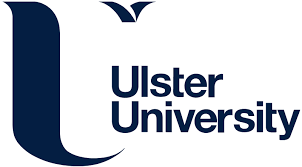

.jpg)









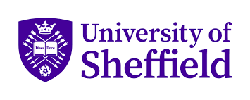

.jpg)


.jpg)
.jpg)
